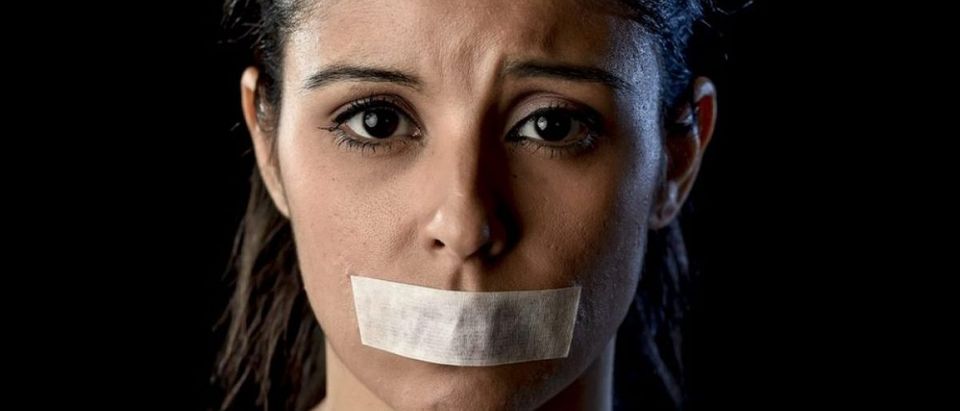When I was a kid we had an easy and effective response to insulting and even threatening comments. “Sticks and stones will break my bones, but words will never hurt me.” It worked wonders. In fact uttering those words made you feel like you had one-upped the purveyor of ill will. I suppose there was some risk that the bad kid would respond with physical abuse of some sort to confirm your point. But that didn’t happen very often. Even bad kids usually had parents who would take appropriate action – and the bad kids knew it.
Yes, they were called bad kids in those days. You were a bad kid if you behaved badly. You could get off the bad kid list by better behavior. Of course there were bad kids who did bad things, but for the most part it was about manners. You didn’t call people derogatory names or otherwise insult them because it was bad manners. There was little tolerance for bad manners.
Things are different today. Bad manners are widely accepted as healthy self-expression while words, we are told, can be every bit as hurtful as sticks and stones. We encourage, in other words, that which we wish to discourage, Words, it seems, can have devastating effects. Hearing offensive language can cause college students to suffer so much that they cannot take their exams when scheduled. Halloween costumes are censored. Great literature is no longer in the syllabus. An offensive word on a bathroom stall can lead school officials to broadcast to all students and parents a condemnation of hate and intolerance, as if the entire student body is responsible for the act of a single student.
It is true that words can incite violence, just as shouting fire in a crowded theater can cause panic. But those are special cases we can readily distinguish from the mere utterance of words, as we do in the case of the 1st amendment. Most of the injury said to result from the saying or printing of particular words is to feelings or self-esteem. “You hurt my feelings,” we used to declare when we were kids. But we had no expectation that some higher authority would censor likely verbal assailants or require compensation of some sort. We didn’t like it, but we understood that getting your feelings hurt now and then was just part of life in the neighborhood.
Today, using even a single bad word or offensive image can get you expelled from school or fired from your job. I had never heard of Kathy Griffin until she was all over the news for a photo of her holding what was meant to appear to be the severed head of our president. In light of our modern ultra-sensitivity to offensive words and images, I understand why CNN fired her from her New Year’s Eve gig. It was a business decision. But it’s a business decision driven by a society with zero tolerance for insult – a society that’s willing to end a career over poor judgment and bad manners. No doubt many people were offended and some may have had their feelings hurt, but who was really harmed by Griffin’s tasteless joke?
Meanwhile there were calls for HBO to fire comedian Bill Maher for using the N word on his show Real Time. Apparently HBO has no plans to comply with these demands, but they did describe Maher’s comment as “completely inexcusable and tasteless” while stating that they would remove the “deeply offensive comment from any subsequent airings of the show.” Just about anyone else who uses the N word (other than those excepted) won’t be so lucky as Maher.
In the pantheon of bad words none exceeds the N word. When I was a kid my grandparents used the N word now and then. Each time my parents cautioned my sisters and I that the N word is disrespectful and should never be used. And so we never used it, although I have already effectively used it five times in this and the preceding paragraph.
That’s a funny thing about offensive words. You can’t say them or print them but you can use transparent code in their place. Newspapers print “f—” and “s–t” and even “n—er” to convey what a person said. But if the mere utterance of a word is truly harmful to others, how is it less harmful when said in transparent code? And how is it harmful when spoken by some but not by others? And has anybody listened to the routine conversation among today’s youth, or watched cable television? If the use of these banned words is really hurtful, most Americans would be in the emergency room.
The point is that, while these bad words reflect bad manners and can be offensive, they are not really harmful to the offended. They are just words, not sticks and stones. Hearing or reading them can make us angry, hurt our feelings and make us disdainful of the speaker or writer. Parents might want to revive the practice of cleansing the miscreant child’s mouth with soap. Employers can even fire foul-mouthed employees if good manners are important to business. But insisting that words can be as hurtful as sticks and stones calls for comparable remedies for both. We really don’t’ want to go there in a free society. Although I’m sure the plaintiffs’ bar is salivating at the prospect.


